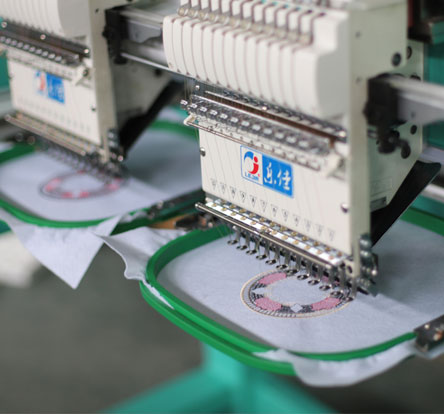Summary:
1. No detection after disconnection
(1) First, check whether the disconnection detection is set in the computer parame...
1. No detection after disconnection
(1) First, check whether the disconnection detection is set in the computer parameters.
(2) The disconnection detection is set in the computer parameters, but all the machine heads are still not detected after the disconnection.
Check the motherboard indicator:
For 91 models, check D29, D30,
Check D16, D18,
07 model check L35, L36,
Check the XJ, DXQD,
For 18/28 models, check the XJ, DXQD,
158/108 models check XJ,
118/128 models check XJ,
Check the XJIA on the motherboard for X16/X26 models.
When the machine is operating normally, these indicators should be flashing for 91 model D29, 95 model D16, 07 model L35, 08 model XJ, 91 model D30, 95 model D18, 07 model L36 should always be on, 08 The model DXQD light should flash. When the above indicator status is wrong, there is a problem with the motherboard and needs to be replaced.
(3) The status of the above indicator lights are correct:
91/95 models check the CZ018 plug on the motherboard,
07 model check the A8 plug on the motherboard,
08 model check the CZ0812 plug on the motherboard,
For 18/28 models, check the CZ5012 socket on the motherboard,
158/108 models check the CZ669, CZ609 plugs on the motherboard,
118/128 model check the CZ709 plug on the motherboard,
Check the CZ7913 plug on the motherboard for X16/X26 models.
To the disconnection detection board socket on the last head of the machine, the three-position disconnection detection board is CZ1, and the two-position disconnection detection board is CZ011. Whether the corresponding connection is connected or not, it proves that the signal is not transmitted to the disconnection detection The board needs maintenance to make it connected.

2. One of the heads is not detected, and the other heads are normal.
(1) The disconnection detection board on this head has a problem and needs to be replaced.
(2) Check the CZ1 signal socket with the three-position disconnection detection board, and check whether the CZ011 signal socket is plugged in by the two-position disconnection detection board.
3. False alarm (after the machine runs a few times, all the indicator lights on the disconnection detection board are on)
The broken wire decoding board is damaged. Several broken wire decoding board models are: DXYMB, EF104, EF119.
4. After a machine head is disconnected, all the indicator lights of the disconnection detection board are on
(1) Check whether the 12V voltage is normal (12V lower than 10V will cause this phenomenon, you need to replace the power supply)
(2) Damage to the disconnection detection board on a certain machine head can cause this phenomenon. The processing method can be to remove the signal lines on the disconnection detection board one by one until the damaged board is found and replaced.
(3) According to the "3" method in the first part, check whether there is a short circuit between the signal lines.
5. After one head is broken, the embroidery is repaired, and the indicators of the other head broken detection boards are all on.
(1) Check D36 for model 91, D21 for model 95, L37 for model 07, and FSW indicator for model 08/18/28. When the machine is in the mending state, these indicators should be on. If it is not on, it means the main board. There is a problem and need to be replaced.
(2) According to the "3" method in the first part, check the signal line for poor contact and disconnection.
6. False alarm with bottom thread detection function. If a certain needle position of a certain end cannot be driven and always alarms, first check whether the small wheel of the needle position rotates normally. If it is correct, pull down the connection cable between the bottom thread detection board of the head and the broken detection board to see if the false detection phenomenon still exists, if not, replace the bottom thread detection board.


